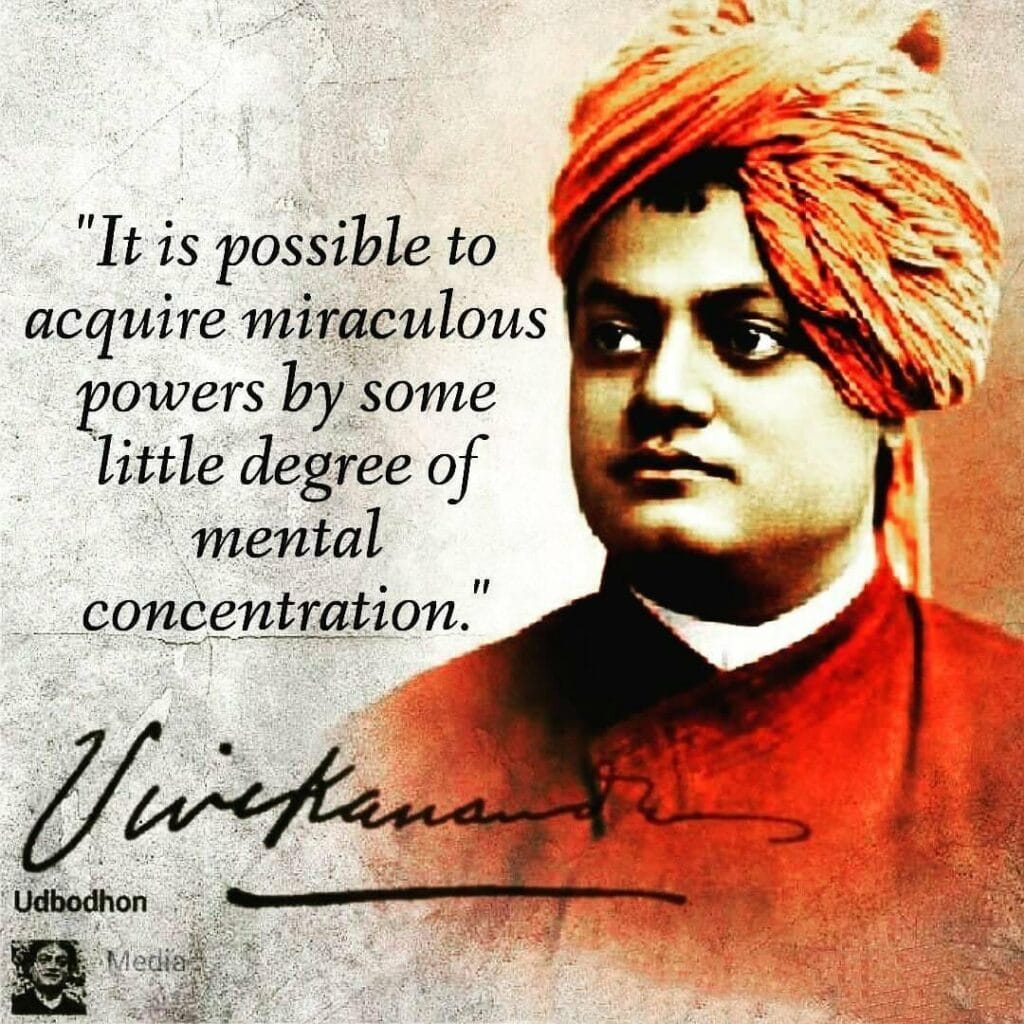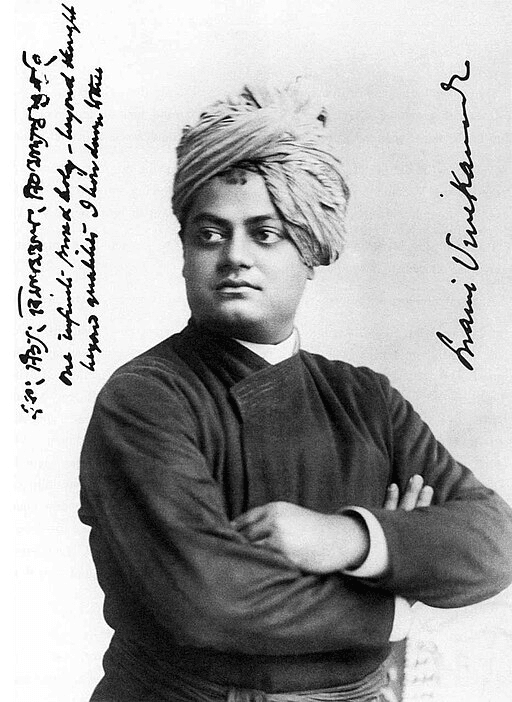SWAMI VIVEKANANDA

Birth and Childhood
Swami Vivekananda was born as Narendranath Datta (commonly called Narendra or Naren) on 12 January 1863 in his ancestral home at 3 Gourmohan Mukherjee Street, Calcutta, during the Makar Sankranti festival. He belonged to a Bengali Kayastha family and was one of nine siblings. His father, Vishwanath Datta, was an attorney at the Calcutta High Court, while his grandfather, Durgacharan Datta, was a scholar of Sanskrit and Persian who renounced worldly life to become a monk at the age of 25. Narendra’s mother, Bhubaneswari Devi, was deeply religious, and her devotion, combined with his father’s rational and progressive outlook, greatly influenced his personality. From a young age, Narendra displayed a strong interest in spirituality, meditating before deities like Shiva and Hanuman and being deeply fascinated by wandering monks.
Early Life and Personality
Narendra was known for his mischievous and restless nature as a child, often challenging his
parents’ patience. His mother famously remarked, “I prayed to Shiva for a son, and he has
sent me one of his demons.” Despite his energy and mischief, he exhibited a deep spiritual
inclination, which stood out even in his early years. He would often meditate, showing an
unusual level of focus for a child. His inquisitive mind and interest in spiritual practices laid
the foundation for his later pursuits as a monk and philosopher.
Education
Narendra began his education in 1871 at Ishwar Chandra Vidyasagar’s Metropolitan
Institution, continuing his schooling until 1877 when his family moved to Raipur. Upon
returning to Calcutta in 1879, he excelled academically, becoming the only student to achieve
first-division marks in the Presidency College entrance examination. His education spanned a
wide array of subjects, including philosophy, history, social science, religion, and literature.
He was also deeply interested in Hindu scriptures like the Vedas, Upanishads, Bhagavad
Gita, Ramayana, and Mahabharata. Additionally, Narendra was trained in Indian classical
music, participated in physical activities, and pursued Western logic and European history at
the General Assembly’s Institution (now Scottish Church College).

Academic Brilliance and Influence
Narendra’s intellectual curiosity led him to study the works of prominent Western
philosophers such as David Hume, Immanuel Kant, Arthur Schopenhauer, and Herbert
Spencer. His fascination with Spencer’s evolutionism inspired him to translate Spencer’s book
Education into Bengali. Alongside his study of Western philosophy, Narendra delved into
Sanskrit scriptures and Bengali literature, displaying exceptional memory and speed-reading
skills. William Hastie, the principal of Christian College in Calcutta, described him as a
genius, comparing him favorably with top students from German universities.
Death and Legacy
On 4 July 1902, Swami Vivekananda began his day with meditation at the Belur Math
monastery, teaching the Shukla-Yajur-Veda, Sanskrit grammar, and yoga philosophy to his
disciples. He later discussed plans for a Vedic college at the Ramakrishna Math. That
evening, at 7:00 PM, Vivekananda retired to his room, requesting not to be disturbed. At 9:20
PM, he passed away while meditating. His disciples believed he attained mahasamādhi,
while medical reports cited a brain hemorrhage as a potential cause. His prophecy of not
living beyond 40 was fulfilled, and he was cremated on a sandalwood pyre on the banks of
the Ganga, near the site of his guru Ramakrishna’s cremation.
Teachings, Philosophy, and Impact
Vivekananda synthesized Hindu thought, especially Advaita Vedanta and yoga, with Western
ideas of Universalism and esotericism, bridging spiritual traditions from East and West.
Influenced by his guru Ramakrishna and organizations like the Brahmo Samaj, he
emphasized the divinity within all beings, promoting service to humanity as service to God.
He reinterpreted Vedanta to reconcile dualism and non-dualism, advocating that liberation
could be achieved through work, worship, mental discipline, or philosophy. His philosophy
of self-discipline, unselfishness, and faith resonated with Western audiences, and his book
Raja Yoga played a pivotal role in introducing yoga to the West. Vivekananda’s teachings on
human development and morality inspired Indian nationalism and a vision of inclusive
progress, aiming to uplift even the poorest through spiritual and educational reform.
